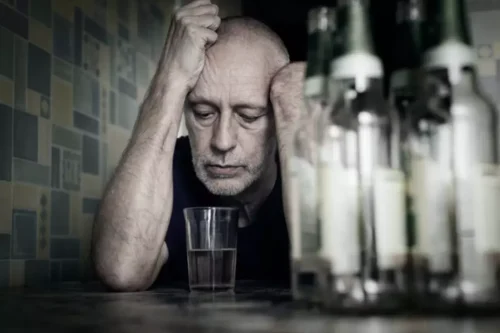
The liver produces this protein, which plays an important role in controlling blood flow and promoting blood clotting. There are no specific warnings about consuming alcohol while taking other blood thinners. However, it is always advisable to consult a doctor or pharmacist before drinking alcohol with any new medication. Therefore, people should always check with a doctor or pharmacist whether it is safe to drink alcohol with a particular blood thinner.
- Additionally, the authors discussed older studies that suggested binge drinking can cause temporary increases in blood pressure.
- In particular, heavier drinkers may underestimate their alcohol consumption.
- Also tell them about any vitamins, herbs, and supplements you use.
Pradaxa and pregnancy
If you have a prescription for a blood thinner like warfarin, the risk of uncontrolled bleeding increases with moderate drinking while the risk of blood clots increases with heavy or binge drinking. As Americans increasingly drink too much in the form of binge drinking, heavy drinking, or AUD, the risks of health problems increase. This is not just alcohol poisoning or drunk driving, but chronic health problems like heart disease.
- Blood vessels reach every organ and tissue in the body, indicating that the blood and the integrity of the blood vessels are essential to maintaining the body’s health and functioning.
- However, warfarin treatment is not indicated for alcoholic patients, because alcohol ingestion can significantly interfere with the proper management of warfarin maintenance therapy.
- Heparin-induced thrombocytopenia (HIT) is a condition that can occur after you take an anticoagulant called heparin.
- These types of blood clots can break loose, travel through your body, and block the flow of blood to your organs.
- Alcohol can interfere with these processes at several levels, causing, for example, abnormally low platelet numbers in the blood (i.e., thrombocytopenia), impaired platelet function (i.e., thrombocytopathy), and diminished fibrinolysis.
Effect of alcohol intoxication on the risk of venous thromboembolism

Talk with your doctor about how much alcohol is safe to drink while you’re taking Pradaxa. This helps prevent blood clots that can lead to heart attacks, strokes, and death. However, if you stop taking Pradaxa before your doctor tells you your treatment is complete, you’ll be at an increased risk of getting a blood clot. AC is an enzyme that plays blood thinners and alcohol a role in the transmission of signals from a cell’s exterior to its interior; the enzyme’s levels in the body are genetically determined. Several studies have found that AC levels in the platelets as well as in some white blood cells are frequently reduced in alcoholics compared with nonalcoholics, even after long periods of abstinence.
function lazyLoadRecaptcha()
- Prospective population studies provide no consensus about the role of beverage choice in alcohol-related CAD risk.
- When a person drinks excessively for long periods, their risk for a stroke increases.
- (An enzyme is a protein that aids chemical changes in your body.) Thrombin is responsible for clotting in your blood.
- During normal neutrophil production in the bone marrow, G-CSF promotes the multiplication and functional activity of neutrophils.
Ask your doctor if and when you should stop taking Pradaxa before having surgery. They may prescribe a different medication to help prevent blood clots from forming while you’re not taking Pradaxa. In addition, Pradaxa is also approved to prevent DVT or PE from occurring after hip replacement surgery.
Moderate Drinking and Reduced Risk of Heart Disease

Possible mechanisms exist by which alcohol consumption might protect against CAD (Renaud et al. 1993; Klatsky 1994). The most well-established protective effect of alcohol consumption is the increased concentration of a natural component of human blood called high-density lipoprotein (HDL) cholesterol. This substance, often referred to in the popular media as the “ good cholesterol,” may protect against CAD by helping to remove fatty deposits from within large blood vessels. More recent studies, however, suggest that both HDL2 and HDL3 are protective. Biochemical pathways for the HDL effect of alcohol are poorly understood (Gaziano et al. 1993; Renaud et al. 1993; Klatsky 1994).
Blood Thinners and Pregnancy
Deep vein thrombosis is a type of clot that forms in a major vein in a leg, arm, pelvis, or other part of the body. These clots are dangerous because they can cause a buildup of blood, leading to swelling and preventing oxygen from circulating effectively around the heart. A piece of the clot may also break off and enter the heart or lungs where it becomes wedged and may cause a heart attack or pulmonary embolism. This may lower your risk for the type of strokes caused by blockages in blood vessels.

When a person experiences an injury, those platelets travel to the area to form together into a blood clot to stop the bleeding. Short- and long-term alcohol use has different effects on the blood. Short-term alcohol use can lead to high blood pressure and thinned blood because it hinders blood cells’ ability to clot. Long-term, excessive drinking can decrease your heart’s ability to function correctly. A study conducted at Georgetown’s University Medical Center determined that alcohol found in approximately two drinks has the capability of decreasing platelet clumping.
- If you’re at a high risk of blood clots – for example, you’re in hospital – follow the advice of your care team about preventing clots.
- Having a drink or two every once in a while may be fine when you’re on blood thinners — just be sure to talk to your doctor.
- A DVT is a blood clot in a large vein in your body, usually in your lower legs, and a PE is a blood clot in the lungs.
Professional information for Pradaxa
These work by blocking a protein that makes your platelets stick together and to the walls of your blood vessels, forming clots. They’re often prescribed to people at risk of having future blood clots, rather than to treat existing ones. For the most part, moderate alcohol consumption is safe for people while taking blood thinners as long as they have no major medical problems and are in overall good health.
What Not to Do While on Blood Thinners

There are a number of factors that determine how dangerous alcohol consumption is while taking blood thinners. Prospective population studies provide no consensus about the role of beverage choice in alcohol-related CAD risk. Reduced risk of CAD presents at various ages, although its impact on total mortality in Kaiser Permanente studies was clearest in older age brackets, and the adverse effects of alcohol were greater among younger persons. Among persons older than age 60, overt or latent CAD may play a role in risk of death from causes other than CAD (Klatsky et al. 1992). Problems inherent to epidemiological studies of alcohol and CVD include individual susceptibility and the categorization of drinking levels. Individual factors that influence interpretation of study results include sex, age, dietary habits, cigarette smoking, the consumption of caffeinated beverages, and various psychosocial factors that are difficult to characterize and measure.
Department of Agriculture, moderate drinking is up to one drink per day for women and up to two drinks per day for men. Four studies have examined the hypothesis that alcohol consumption protects against CAD by increasing HDL cholesterol levels (Criqui et al. 1987; Suh et al. 1992; Gaziano et al. 1993; Marques-Vidal et al. 1996). Findings suggest that higher HDL levels in drinkers mediate approximately one-half of the lower CAD risk. One report (Gaziano et al. 1993) suggests that both HDL2 and HDL3 are involved in this protective effect.
